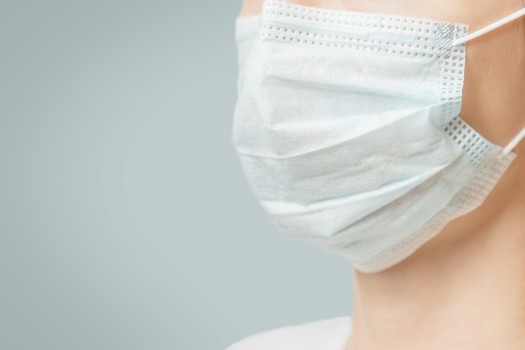Facemasks could protect vulnerable patients in healthcare settings, finds study

Evidence supports vulnerable people using facemasks for short periods in high-risk situations such as healthcare settings, researchers have found.
Reviewing 31 studies that had analysed whether wearing facemasks stopped people getting Covid-19-like symptoms, including fever, a cough, a sore throat, and other typical symptoms of respiratory infection, researchers at the University of East Anglia (UEA) found that masks had a consistent but small protective effect.
They said that while evidence is not strong enough to recommend widespread use of masks in the general population, there is enough evidence to support vulnerable people deciding to use them for short period in temporary high-risk situations, including on public transport or when visiting shops.
They said in the paper: ‘The evidence is not sufficiently strong to support widespread use of facemasks as a protective measure against Covid-19.
‘However, there is enough evidence to support the use of facemasks for short periods of time by particularly vulnerable individuals when in transient higher-risk situations.’
Due to the rapid-response nature of this research, it has not yet been peer reviewed. The respiratory symptoms studied were similar to coronavirus, but researchers were unable to look specifically at Covid-19 as there have been no such studies to date.
They said that further high-quality trials are needed to assess exactly when wearing a facemask in the community is most likely to be protective.
It is still best to recommend patients follow the Government guidelines for social distancing and regular handwashing.
Lead researcher Dr Julii Brainard said: ‘The protective effect is probably small within a home setting because people have lots of repeated types of contact, so there are many ways for the germs to transmit.
‘This is why washing hands remains so important. Washing hands well only requires 20 seconds of concentration occasionally throughout the day.’
Dr Brainard also said: ‘Although we can support vulnerable people who choose to wear masks to avoid infection, we want to remind everyone that the people who most need to wear masks, to protect us all, are healthcare workers.
‘We are all in more danger from Covid-19 if healthcare workers cannot obtain the safety equipment they need, which could happen if community demand for facemasks becomes too high.’
A recent BMA survey found that nearly two thirds of GPs in contact with Covid-19 patients were struggling to access facemasks.









